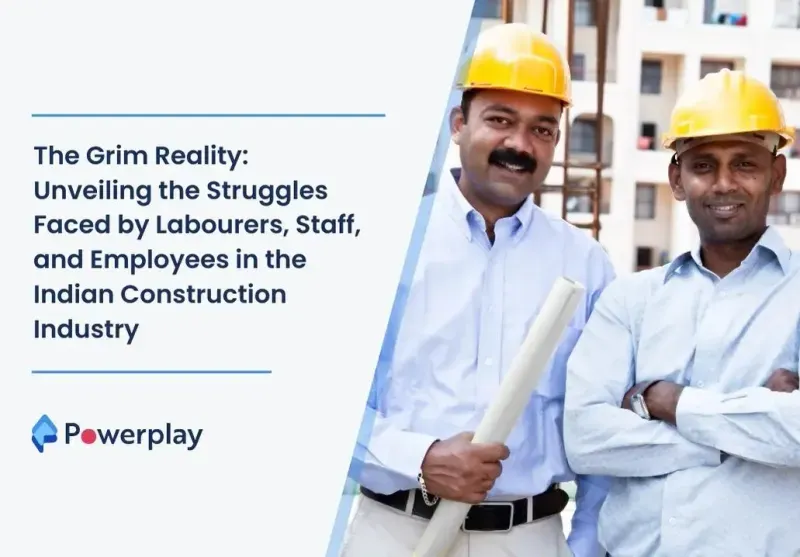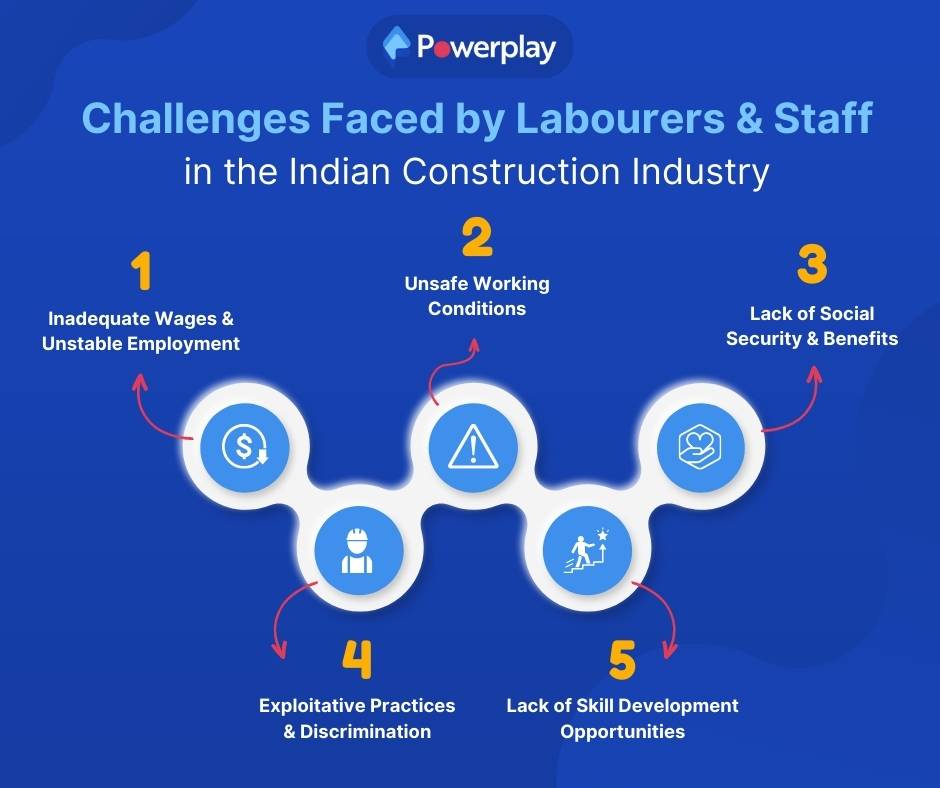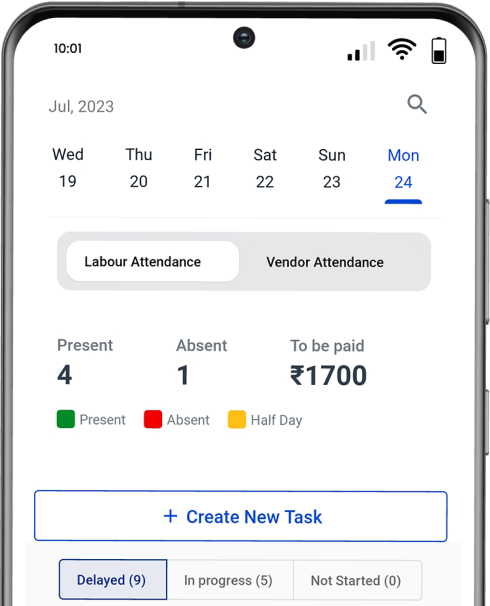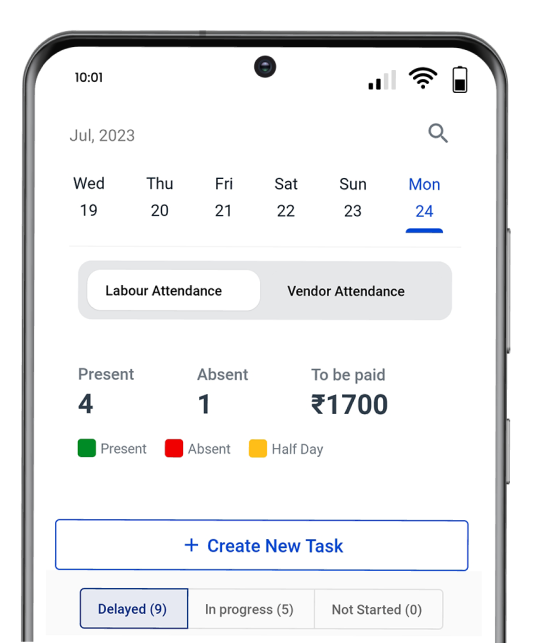The Grim Reality: Unveiling the Struggles Faced by Labourers, Staff, and Employees in the Indian Construction Industry
-
Kumar Abhishek Anand
- October 11, 2023

The Indian construction industry, often touted as a backbone of the nation’s development, stands on the sweat and toil of its workers, staff, and employees. However, behind the towering structures and gleaming facades, lies a distressing truth – the deplorable state of labourers, staff, and employees in this industry. This blog sheds light on the challenges they face, from inadequate wages to unsafe working conditions, and urges for a much-needed change.

Table of Contents
Toggle1. Inadequate Wages and Unstable Employment
One of the most pressing issues in the Indian construction industry is the abysmally low wages earned by labourers, staff, and employees. Many of them struggle to make ends meet, living hand-to-mouth despite their tireless efforts. The absence of fixed employment contracts adds to their woes, leaving them in a perpetual state of uncertainty about their livelihood. Urgent reforms are needed to ensure fair compensation and job security for these hardworking individuals.
2. Unsafe Working Conditions
Safety often takes a backseat in many construction sites across India. Labourers, staff, and employees are forced to work in hazardous environments without proper protective gear or safety protocols. This lack of concern for their well-being not only jeopardises their lives but also leaves them vulnerable to injuries and health issues. It is imperative that strict safety regulations are implemented and enforced to safeguard the lives of these workers.

3. Lack of Social Security and Benefits
The absence of social security measures further exacerbates the challenges faced by labourers, staff, and employees. Many of them are not entitled to benefits such as health insurance, retirement plans, or provident funds. This lack of support leaves them financially vulnerable in times of crisis, and it is crucial that the industry and government collaborate to establish comprehensive welfare schemes for these workers.
4. Exploitative Practices and Discrimination
Instances of exploitation and discrimination are sadly common in the construction industry. Contractual workers are often subjected to unfair treatment, with limited access to basic facilities and amenities. Moreover, the industry’s workforce is often divided along lines of class, caste, and gender, leading to further marginalisation of certain groups. Eradicating such discriminatory practices and ensuring equal treatment for all should be a top priority.

5. Lack of Skill Development Opportunities
The Indian construction industry predominantly relies on unskilled and semi-skilled labour. This perpetuates a cycle of low wages and limited career growth for workers. Encouraging skill development and training programs can empower labourers, staff, and employees to enhance their skills, potentially leading to better job prospects and improved earning potential.
Conclusion
The Indian construction industry may be witnessing remarkable growth, but it’s essential to recognise that this progress should not come at the cost of exploiting its workforce. Labourers, staff, and employees deserve dignified working conditions, fair wages, and access to social security measures. It’s high time for industry stakeholders, government bodies, and society as a whole to come together and prioritise the well-being of those who contribute immensely to building the nation’s future. Only by addressing these pressing issues can we hope to transform the construction industry into a more equitable and just sector for all its workers.
Share
Kumar is a digital content professional with more than 2 years of experience in Blog writing, copywriting and scripting. His passion lies in the art of creating convincing content that plays a major role in converting leads for SAAS businesses.












